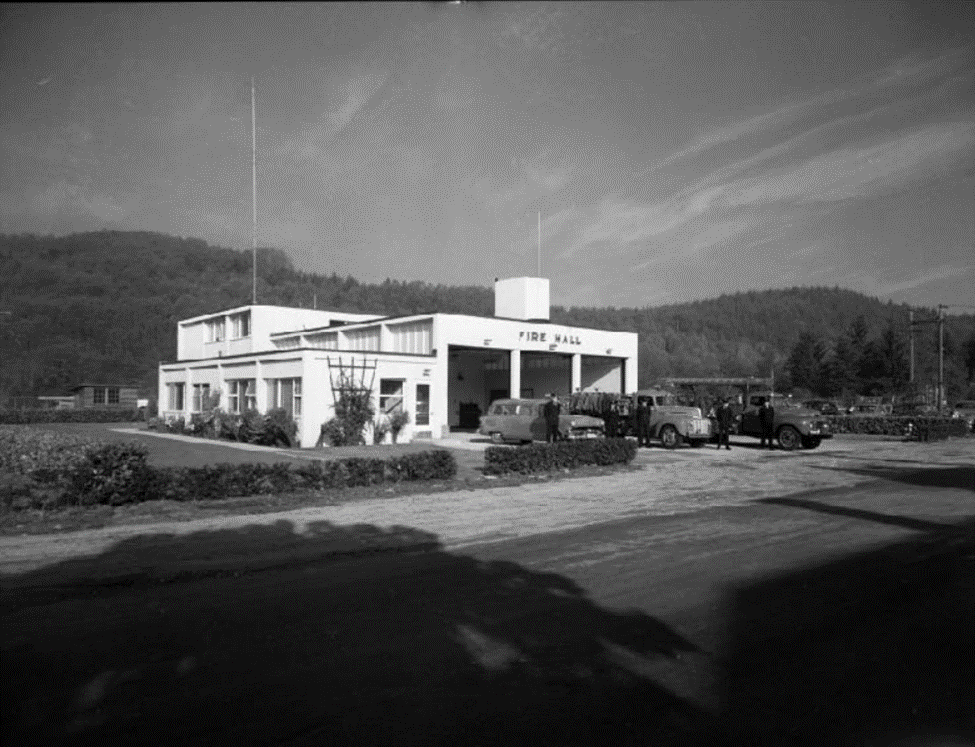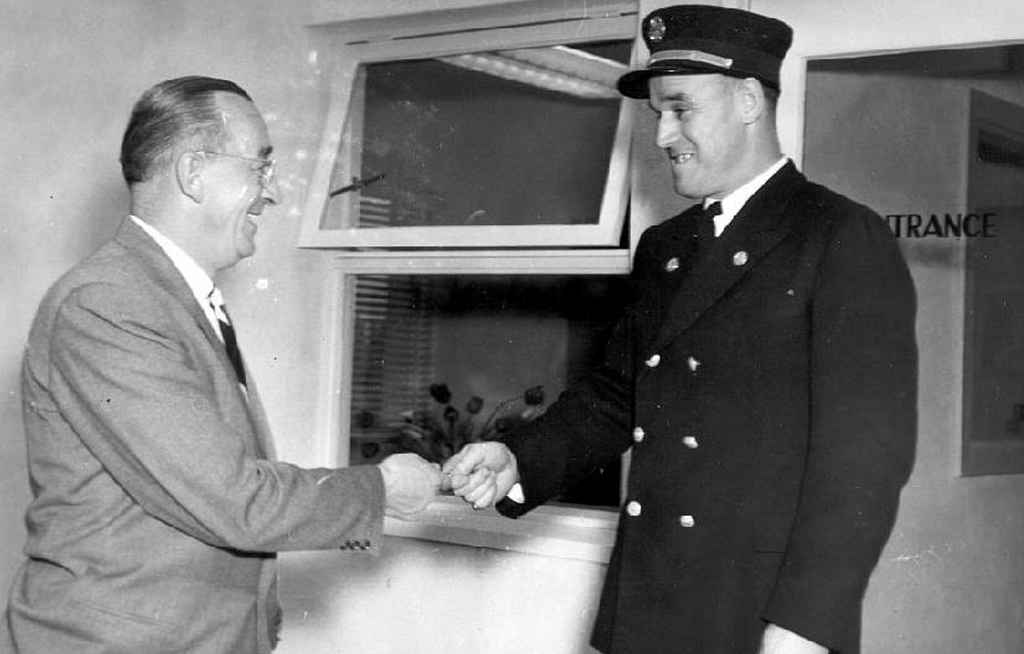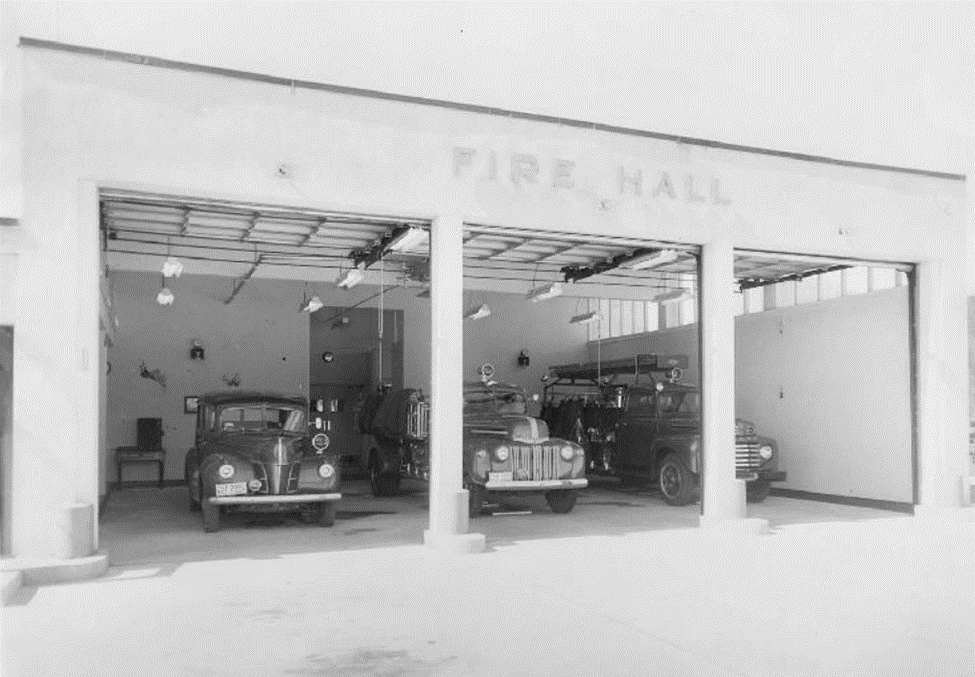Powell River’s Arbutus Fire Hall: An Ongoing Legacy of Saving Lives

While the name “Arbutus Fire Hall” might conjure images of sirens and fire trucks, the story of this Powell River landmark has taken an unexpected and heartwarming turn. For years, the fire hall served as a bastion of safety, with dedicated firefighters working tirelessly to protect the community from harm. However, thanks to a powerful collaboration that wouldn’t have happened without the qathet Regional District, the Arbutus Fire Hall is undergoing a profound transformation worthy of it’s history.

In the first week of May, 1951 with the Hon. Gordon S Wismer, BC’s Attorney General, in attendance, Powell River Company director R.M. Cooper presented keys to fire chief Stan Davies, and the Arbutus Fire Hall was officially opened. The fire hall housed the Chief, 5 drivers, and 14 volunteers, a 1940 Ford (Woody) Wagon, and two late 1940’s Ford Fire Trucks, all in an open, well-appointed floorplan. Now, more than 73 years later, a project nearing completion has been under a new life-saving mission, renovating the hall to help area residents put out the fire of addiction that burns within them.

Recognizing the pressing need for addiction treatment services on the Sunshine Coast, this partnership has embarked on a project to convert the fire hall into a cutting-edge addiction treatment centre. This ambitious endeavor will expand the 12 current beds operated by Miklat Recovery with an additional 12 beds, offering a lifeline to individuals struggling with addiction and their families. The qathet Regional District, in particular, has been instrumental in facilitating this project, demonstrating their unwavering commitment to the well-being of the community.
The metamorphosis of the Arbutus Fire Hall serves as an inspiring testament to the power of collaboration and the unwavering spirit of Powell River. It’s a story of how a community can come together to address its challenges head-on, turning a symbol of crisis response into a beacon of hope and healing. This transformation is not just about bricks and mortar; it’s about creating a safe and supportive space where individuals can embark on their journey to recovery.

The Arbutus Fire Hall stands as a shining example of how a community can reinvent itself, adapting to the evolving needs of its residents. It’s a story of resilience, compassion, and the unwavering belief in the possibility of second chances. As the fire hall enters this new chapter, it carries with it the legacy of those who served to protect the community from flames, while embracing a new mission to help individuals find their way out of the darkness of addiction. In many ways, this building, built to save the lives and homes of the people of qathet, continues to save the lives of residents of the region. Together We Can’s mission is now the Arbutus Fire Hall’s legacy: Rebuilding Lives, Healing Families, and Strengthening Communities.
Powell River’s Arbutus Fire Hall: An Ongoing Legacy of Saving Lives was originally published in Together We Can on Medium, where people are continuing the conversation by highlighting and responding to this story.



